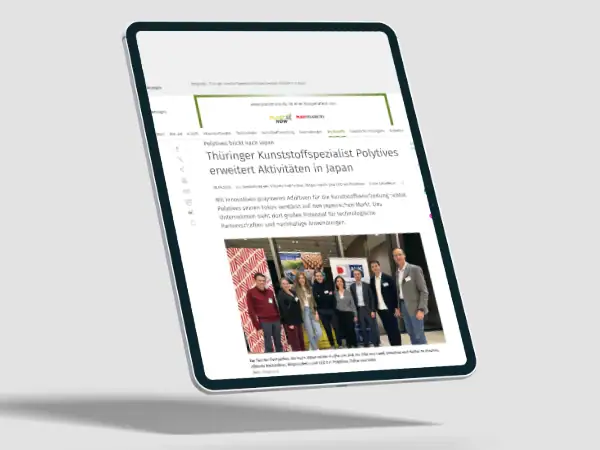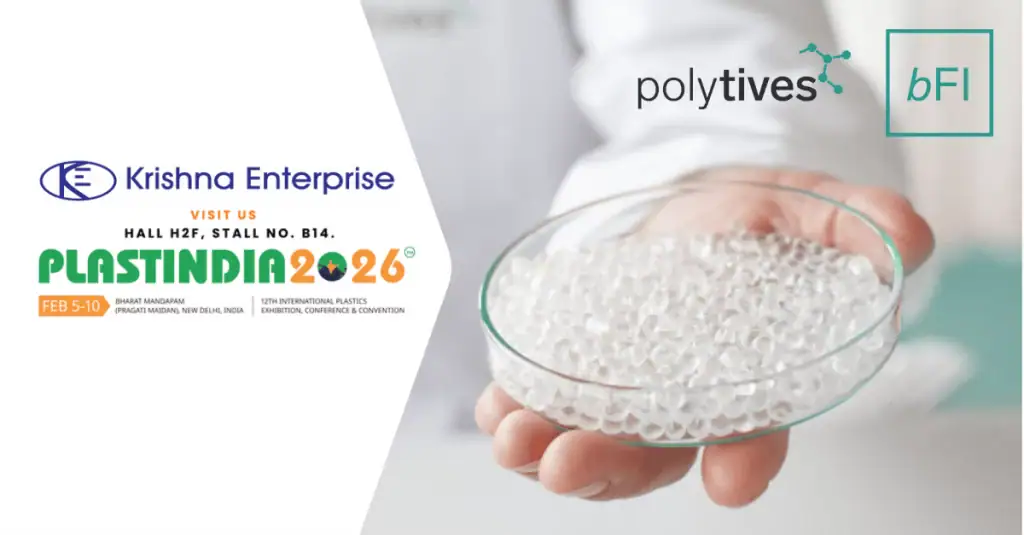A Strategic Step into a Technological Powerhouse
For Polytives, a technology company from Thuringia, Germany, the journey to Japan marks a milestone in its international expansion. With a polymer additive platform designed to improve efficiency, energy use, and process stability in plastics manufacturing, Japan represents an ideal growth market.
Although Japan’s plastics market, at 9 million tonnes annually, is smaller than those of China or North America, it stands out for its technological sophistication and innovation potential. More than 45% of processed plastics in Japan are used in technical applications — nearly double the global average.
Building Bridges Between Innovation and Culture
Successful collaboration, says Polytives CEO Viktoria Rothleitner, requires more than digital meetings — it needs personal interaction and cultural understanding.
During a delegation trip to Tokyo, Osaka, and Kyoto, Rothleitner and her team participated in the Innovation Leaders Summit (ILS), a matchmaking platform that connects start-ups with major industry partners.
The trip resulted in valuable partnerships, including early discussions with Sanyo Trading and Mitsubishi. What stood out most, however, was Japan’s structured and respectful communication style — fact-based, efficient, and highly professional. Meetings were well-prepared, precisely timed, and marked by mutual appreciation.
Lessons from Japan’s Industrial Culture
Polytives gained deep insight into how Japanese companies operate:
-
Broad diversification across industries under one corporate umbrella
-
Strong focus on precision, quality, and long-term cooperation
-
Growing commitment to sustainability and circular economy
Japan’s approach to sustainability is young but highly determined. From bio-based materials to surface coatings with recycled fillers — the market is actively exploring environmentally conscious innovations.
Why Japan Is the Right Market for Polytives
Polytives’ polymeric additive technology is particularly well suited to Japan’s engineering plastics sector, which values long-term partnerships, performance optimization, and technological clarity.
The company’s bFI additive platform improves flowability, reduces pressure and temperature requirements, and boosts energy efficiency — all crucial for Japan’s precision-oriented plastics manufacturers.
To ensure a strong market entry, Polytives has launched a pilot phase with defined resources, measurable KPIs, and a local distribution partner. Several initial projects are already underway, showing excellent results and collaboration.
Learning from a Market That Values Respect and Precision
“Japan has shown us how efficient global cooperation can be when it’s built on preparation, respect, and shared curiosity,” says Rothleitner.
The experience reinforced Polytives’ belief that technological progress and cultural understanding go hand in hand.
While every market is different, the principles of process optimization and energy-efficient production remain universal. Polytives’ platform technology delivers exactly that — now also for Japan’s advanced plastics industry.
Conclusion: From Thuringia to Tokyo – A Shared Vision for Sustainable Plastics
The expansion into Japan underlines Polytives’ global ambition: combining German innovation with Japanese precision to shape the future of sustainable plastics processing.
Through intelligent polymer additives, the company is proving that the next generation of materials innovation lies not only in new polymers, but in smarter chemistry that makes existing materials more efficient, sustainable, and globally adaptable.
About Polytives:
Founded in 2020, Polytives develops polymer-based additives that optimize flow behavior and energy efficiency in plastics processing. These innovative additives integrate seamlessly into polymer matrices, enabling sustainability and performance without compromising material properties.


Recent Comments